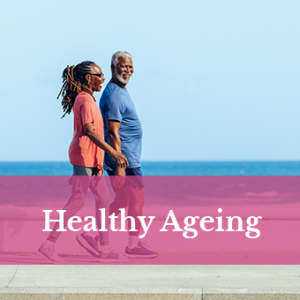
Functional Perception and Psychosocial Well-being of Angolan Older Adults: Contributions of Physical Therapy and the Use of Validated Instruments for Healthy Aging
Presenter(s):
Rita Bárbara; Adalzira Atas; Silvana Rocha da Silveira, Universidade Privada de Angola, Angola
Abstract
Introduction:Healthy aging is a global health priority as emphasized by the WHO Decade of Healthy Ageing (2021–2030). In Angola, there is a lack of structured data and culturally validated instruments to assess the quality of life of older adults. Physical therapy plays a key role in promoting autonomy, functionality, and well-being. This study offers an important insight into the applicability of the WHOQOL-OLD instrument to the Angolan context.
Objective:To investigate the health and well-being perceptions of Angolan older adults using the WHOQOL-OLD, and to discuss the need for validated instruments and the contribution of physical therapy to healthy aging.
Methods:A descriptive cross-sectional study was conducted with 10 older adults (mean age 72.3 years) from different regions of Angola. The WHOQOL-OLD questionnaire was used to assess sensory abilities, autonomy, death and dying, social participation, past-present-future activities, and intimacy.
Results:Participants reported that sensory losses had a moderate impact on their daily activities and social interactions (57.14%). The same percentage reported feeling free to make decisions, although 42.86% indicated only moderate control over their future. Fear related to pain before death was also present in 42.86% of responses, highlighting the importance of emotional support in care. A significant majority (85.71%) expressed strong feelings of love and companionship, which are essential to their well-being. Neutral responses predominated in aspects related to satisfaction with life, social participation, and personal achievements, revealing areas where physical therapy may help strengthen engagement and functional purpose.
Conclusion:Although the sample size was small, this study represents an important first step toward building knowledge focused on analyzing the quality of life of Angolan older adults. The findings highlight the urgent need for cultural validation of instruments such as the WHOQOL-OLD and reinforce the crucial role of physical therapy in comprehensive approaches that integrate functionality, autonomy, and psychosocial well-being in healthy aging.
Keywords: Healthy aging, physical therapy, elderly
Bio(s):
PhD candidate in Rehabilitation Sciences, university professor, and current head of the Department of Physiotherapy at the Universidade Privada de Angola. She works in the training of physiotherapists and in the organization of academic and clinical programs focused on the care of critically ill patients, functional rehabilitation, and elderly care. She leads initiatives aligned with the Decade of Healthy Ageing (2021–2030) by the World Health Organization, with an emphasis on promoting functionality, preventing disability, and implementing integrated, person-centered care.
Her areas of interest include respiratory physiotherapy, functional ageing, multidimensional assessment, intensive care rehabilitation, interprofessional education, and the cross-cultural validation of clinical instruments. She conducts research that adapts assessment tools to the African context and promotes interdisciplinary investigations addressing the specific needs of the Angolan population, with a strong focus on functionality.
